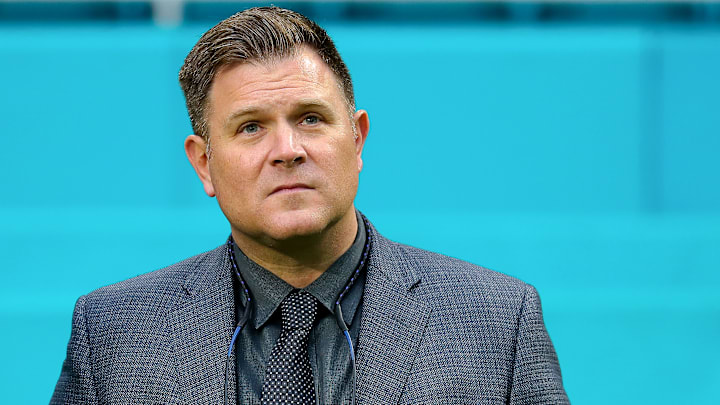2. Trading Davante Adams
This was complicated. Davante Adams wanted to go. In the end, Gutekunst had little choice but to trade away the Packers' All-Pro wide receiver. But the entire mess could've been avoided.
Had the Packers been willing to make Adams the highest-paid receiver in the league the summer before, which he deserved, he may have already extended his contract before the offseason.
The trade also came just days after Aaron Rodgers had committed to play in 2022. If the Packers knew Adams wouldn't be back, re-signing Rodgers was not a good decision. It had to be one or the other. Green Bay runs it back with its star players, including Adams, or it resets and trades both of them.
The Packers settled for a middle ground, and their 8-9 record reflected that.
1. Aaron Rodgers' contract extension
The Packers and Aaron Rodgers were at a crossroads last year. Due to his salary cap hit, something needed to be done. If Rodgers didn't retire, the Packers either had to trade him or pay him. They chose the latter, giving Rodgers a three-year extension worth $150.8 million.
Twelve months later, the Packers gave permission for Rodgers to speak with the New York Jets and entered trade negotiations.
The extension helped lower his 2022 cap hit, but the Packers are now forced to pay for it. If and when Rodgers is traded, the Packers will pay over $40 million in dead cap, while likely receiving far less trade compensation than they would've gotten a year ago.
The Packers paid Rodgers and got a one-year, 8-9 season out of it. Now they are scrambling to move on and get the contract off their books.
